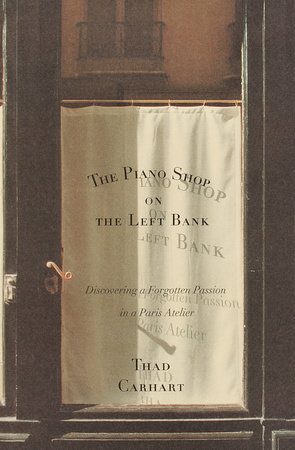The Piano Shop on the Left Bank Reader’s Guide
By Thad Carhart


1. As much as it is a history of the piano, The Piano Shop on the Left Bank also offers a warm account of the author’s friendship with Luc, the atelier’s master. When Carhart first meets Luc, he offers Carhart his right forearm to shake, since his hands were wet. Carhart observes that this is a particularly French custom. What other customs does Carhart encounter that might surprise or startle an American observer? What might be an explanation for the French way of doing things?
2. Carhart admits that, with Luc as a guide, he begins to feel as though he’s looking at pianos for the first time. How would you describe Luc’s attitude towards the piano? What characteristics does Luc find attractive in the pianos that pass through his restorer’s hands?
3. In the chapter entitled “Miss Pemberton,” Carhart recalls a piano teacher of his who once remarked, “Music isn’t music unless we share it with others.” Would you agree with this statement? Why, or why not? Do you agree with Carhart’s description of a piano recital as a “confidence game”?
4. What, according to Luc, contributes to a piano’s personal character? In what ways do modern production techniques sometimes diminish this character?
5. In describing his evolving friendship with Luc, Carhart writes, “Beyond our conversations about the pianos in the shop, certain things were tacitly understood. Luc and I virtually never asked about each other’s personal lives, although details occasionally came out as we talked.” How does this picture of a friendship compare with how most Americans understand the idea of friendship? Indeed, would you label his relationship with Luc a friendship, or something else?
6. After buying a Stingl baby grand piano for his tiny Paris apartment, Carhart decided to embark on a series of piano lessons (something he hasn’t had since childhood.) How is Carhart’s attitude towards lessons different from when he was a child? What, according to the story, are some of the pleasures that re-discovering childhood passions can offer?
Just for joining you’ll get personalized recommendations on your dashboard daily and features only for members.
Find Out More Join Now Sign In